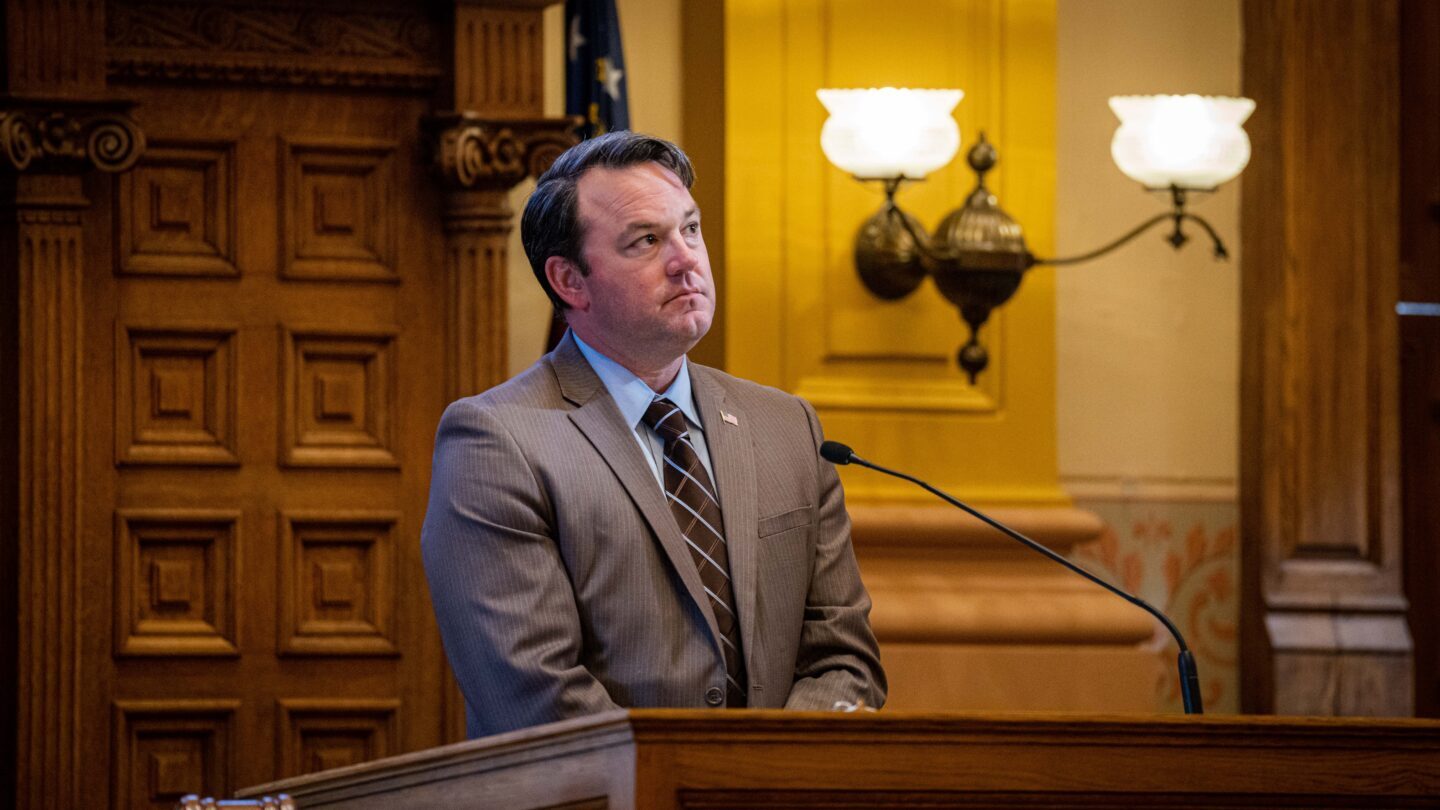Georgia senators began examining on Tuesday whether the state should still require permits to build health care facilities, after a push to loosen the rules mushroomed into a House-Senate standoff during this year’s legislative session.
The first meeting made clear that many committee members appointed by Lt. Gov. Burt Jones want a full or partial repeal of Georgia’s certificate of need rules.
“Georgians would be better off if the Peach State would join the states that do not have CON (certificate of need) laws,” said Thomas Stratmann, a professor at Virginia’s George Mason University. One of the study committee’s invited witnesses, Stratmann works with the Mercatus Center, a free-market think tank.
But senators are unlikely to have the final word. The state House has its own study committee, which will begin meeting later. What each chamber wants is unlikely to become clear until legislation is introduced for the 2024 legislative session.
Certificates of need, in place in Georgia since the 1970s, require someone who wants to build a new health facility or offer new services to prove an expansion is needed. The permits are meant to prevent overspending that would increase health care costs.
But incumbent hospitals and health care providers often oppose new developments. Those who dislike the certificates say the law has outlived its usefulness because the government and insurers now seek to control costs by negotiating prices in advance. Instead, they say certificates prevent needed competition and prop up existing health care facilities’ revenues.
“When hospitals enjoy this monopoly, everybody pays more,” said Barry Herrin, an Atlanta health care lawyer.
While some states have repealed certificate-of-need laws, Georgia is among 34 states and the District of Columbia still using them.
The Georgia Hospital Association argues that the law is needed, at least in some cases, to make sure outpatient surgery centers and other providers don’t skim off a hospital’s most profitable procedures. Keri Conley, the association’s general counsel, told lawmakers that hospitals need to charge more because they must see patients around the clock.
“The more patients that we draw out of the hospital, the higher the level of costs we’re going to have to figure out how to fund on the back end to keep those other services available,” Conley said.
Officials with the association said it would soon make its own proposal to alter Georgia laws.
Stratmann and others said their research shows permits reduce access to care and health care quality by limiting competition. But Josselyn Hill, a Senate research analyst, said research draws few clear conclusions about whether certificate of need laws affect cost and quality.
Opponents said that if research doesn’t show clear-cut benefits, that’s a reason to repeal the law.
“If it’s not showing unequivocal results for keeping regulation, it’s hard to justify a monopoly and being anti-competitive,” said Sen. Ben Watson, a Savannah Republican and medical doctor.
There was repeated discussion Tuesday of rural areas, where Georgia has seen hospitals close, leaving some residents distant from medical services. Repeal supporters said states without permits have more rural hospitals, but it’s unclear what would happen in Georgia ended its requirements.
Much of this year’s debate was centered on a Senate bill that would have ended certificates of need for hospitals in counties with fewer than 50,000 residents. That measure was aimed at letting an undisclosed entity build a new hospital in Butts County, the home of Lt. Gov. Burt Jones.
There, Marietta-based Wellstar Health System operates the county-owned Sylvan Grove Hospital. County commissioners say the 25-bed hospital doesn’t provide enough services.
Wellstar has said a new 100-bed hospital would hurt both Sylvan Grove and the 160-bed Wellstar Spalding Regional Hospital in nearby Griffin.
The Atlanta Journal-Constitution reported a new hospital could be built on land that Bill Jones, Burt Jones’ father, has purchased. Butts County renderings depict a hospital on some of the land. The lieutenant governor’s office has said a site hasn’t been designated.









